Machover looks back on life since his childhood under the Palestine Mandate and describes both his own family and political background
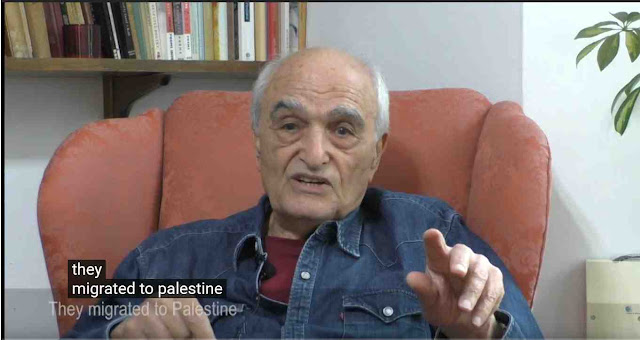
There are not many people who can justly be described as legends in their own lifetime but Moshe Machover is one such person. An indefatigable optimist he was the ‘one who got away’. Targeted by the Zionists and expelled summarily by the Labour Party’s discredited Sam Mathews, there was such a groundswell of opposition both within and without the Labour Party, that Moshe was reinstated within a month after Corbyn’s office had been forced to intervene with the Compliance Unit.
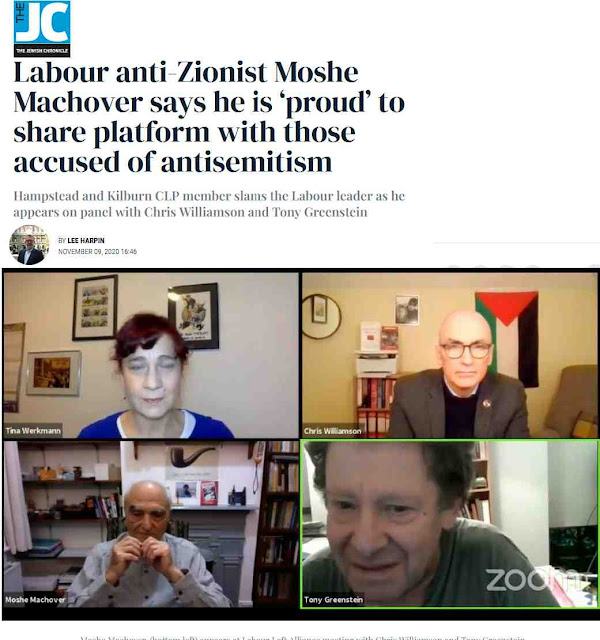
Moshe has subsequently been suspended by Starmer as part of his purge of anti-Zionist Jews (its official name, as befitting such doublethink, is ‘rooting out anti-Semitism’).
Helen Aksentijevic is a filmmaker who decided to make a series of films about supporters of Palestine including Moshe. See Enlightenment and Pure Joy. Helen can best be described as a travelling protest photographer.
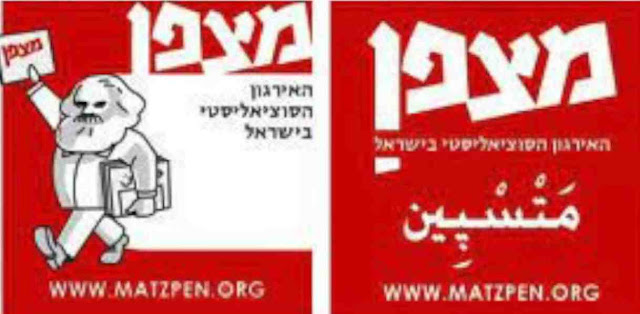
The first pamphlet that I read, at the age of 18 when I was coming out as an anti-Zionist, was by Moshe Machover and two fellow members of Matzpen, Akiva Orr and Haim Hanegbi. Up to then my opposition to Zionism was largely instinctive rather than theoretically worked out. This was a time when the very word ‘Palestinian’ was disputed. I had been brought up to consider Palestinians as just ‘Arabs’. It is as if Romanians or Swiss nationals were referred to as Europeans. Golda Meir, the Israeli Prime Minister famously declared that there was no such thing as the Palestinians.
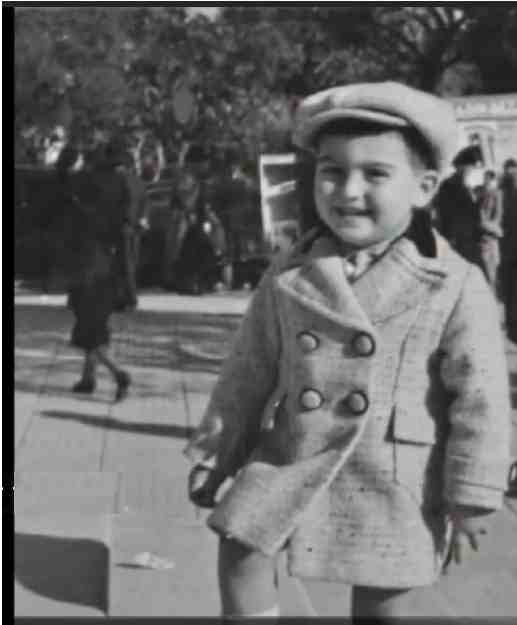
Moshe as a child
‘The Class Nature of Israeli society’ was published by New Left Review in January/February 1971 although I read it in a pamphlet published by the International Socialists (SWP). It helped me to clarify my intuitive feelings about Zionism, that it was an exclusivist and chauvinist project that rejected the basic ideas of Socialism. The pamphlet helped me to jettison many of the ideas that I had grown up with in a Zionist environment.
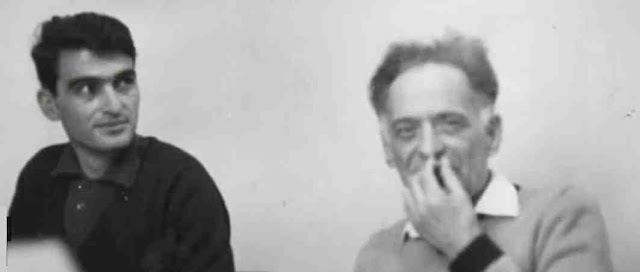
Matzpen (Compass), which Moshe helped form in 1962, was the first Israeli anti-Zionist organisation. In the film Moshe describes briefly the origins of the organisation and the influence of the Palestinian Marxist Jabra Nicola over him and others. Nicola saw the solution to the dispossession and oppression of the Palestinians as being a regional one involving workers and peasants struggle in the Arab East to overthrow the corrupt and repressive regimes which dot the landscape.
The Israeli Communist Party, from which Matzpen broke, never rejected Zionism. Indeed it has never had any analysis of Zionism worthy of the name. It sees Zionism as largely irrelevant and doesn’t see the Israeli working class as a settler working class.
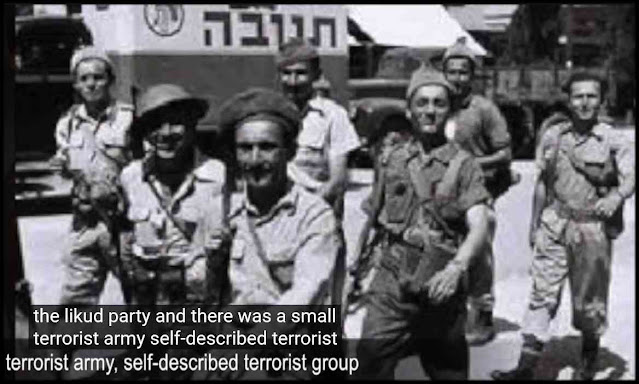
By way of contrast Matzpen developed an understanding of Zionism and Israel as a settler-colonial ideology and movement or what Moshe describes, using Kautsky’s terminology a ‘work’ or ‘exclusion’ colony as opposed to an ‘exploitation colony’.
In my view these categories are too rigid, as some colonies like South Africa could be both exploitation and exclusion colonies. Hence South Africa’s Bantustan policy.
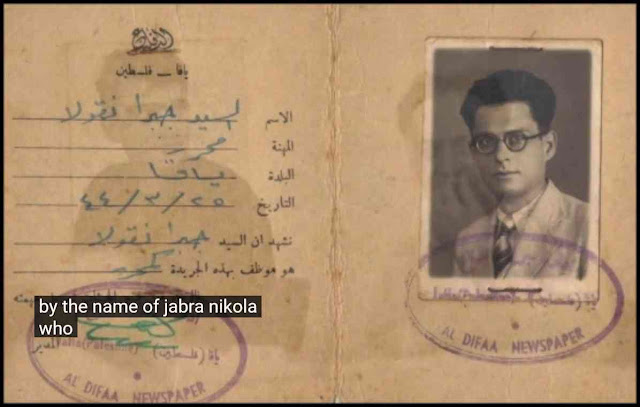
Rakah, the Israeli Communist Party believed and still believes that the Israeli state can be reformed and that Israeli Palestinians can achieve equality within it. They never understood that it was Zionism which ensured that Israel could never become a state of its own citizens. Rakah was a Stalinist party that went along in 1948 with Stalin’s support for the establishment of a ‘Jewish’ state, a policy which all but destroyed the Arab Communist Parties in the region.
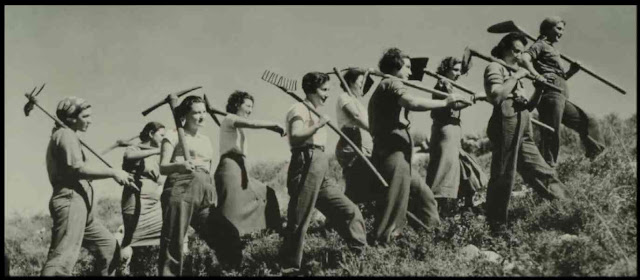
Today the Palestine solidarity movement and academia takes it for granted that Israel is a settler colonial state, but for many years people saw Israel as either a liberal democracy or a social democratic, if not socialist society, with the Kibbutzim as their idea of socialism in practice. The idea 60 years ago that Israel was a settler colonial state was ground breaking.

I freely confess that Moshe has been an enormous influence over my own political development although, as often happens with one’s mentors, we disagree on certain issues. I don’t for example accept Moshe’s belief that the Israeli or Hebrew people constitute a nation in their own right with a right to self-determination as a Hebrew state in the future. In my view such a state would inevitably contain within it forces seeking to reconstitute themselves as a Zionist and Jewish Supremacist state with all that entails. Hebrew culture in Israel is inevitably a culture of oppression.
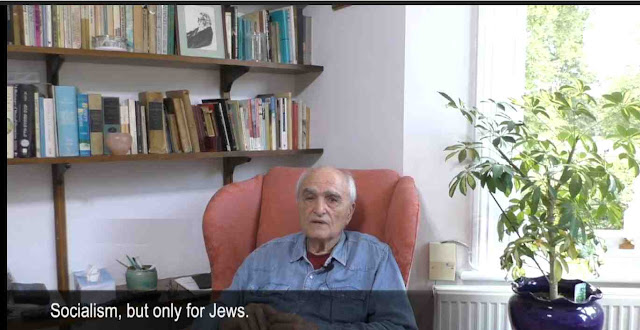
Unlike Moshe I also believe that the idea or concept of a unitary democratic secular state is one that the Palestine solidarity movement should adopt. Why? Firstly because it negates the concept of a Jewish State, which the two state solution does nothing to challenge. But also because a solidarity movement that is unable to present a vision of what it is striving for will in the end succumb to partial solutions such as a repartition. How such a goal will be achieved is a separate question.
I also have less faith in the future potential of the Israeli working class than Moshe because experience has shown that in settler colonial states, be it South Africa or Ireland, the settler working class is to the right of its own bourgeoisie. Their support for an ethno-supremacist state means that they are incapable of acting as a class for itself.
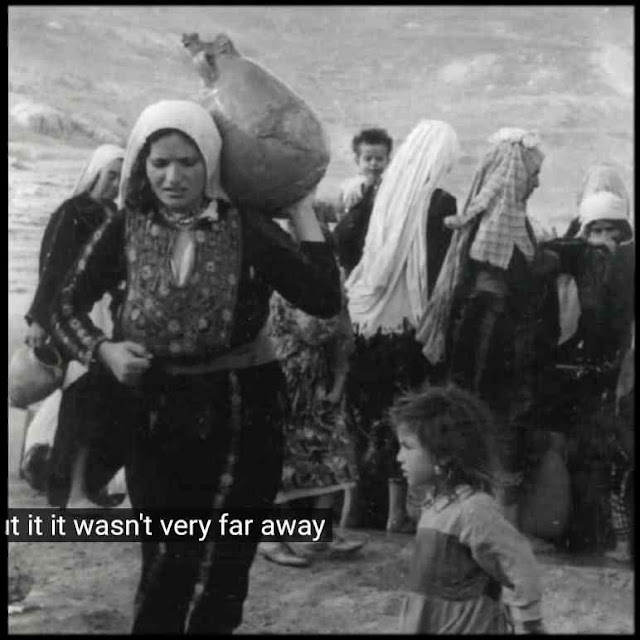
I see no progressive or socialist potential in the Israeli Jewish working class because its identity wrapped up in the super oppression of the Palestinian working class.
Today the idea of Israel as an Apartheid State has become widely accepted. This idea, that Israel is a state in which racial oppression is not a side effect or by-product of its other policies but inbuilt into the state itself, has gradually taken hold. Ideologically Israel and its defenders are in a weaker position now than they have ever been.
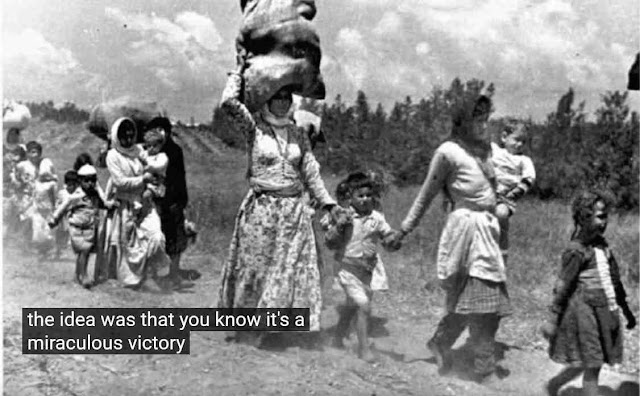
This development has taken place at the same time as Israel is militarily and economically stronger than it has ever been although still dependent on its benefactor, the United States.
Where I agree with Moshe is that the Question of Zionism or Palestine cannot be solved within the borders of Palestine. The great mistake of the Palestinian leadership, the PLO, was to believe that they could become yet another corrupt Arab leadership in a Palestinian state of their own side by side with the Israeli state. The PLO leaders desired nothing more than the right to oppress their own people, as the Palestinian Authority today demonstrates.
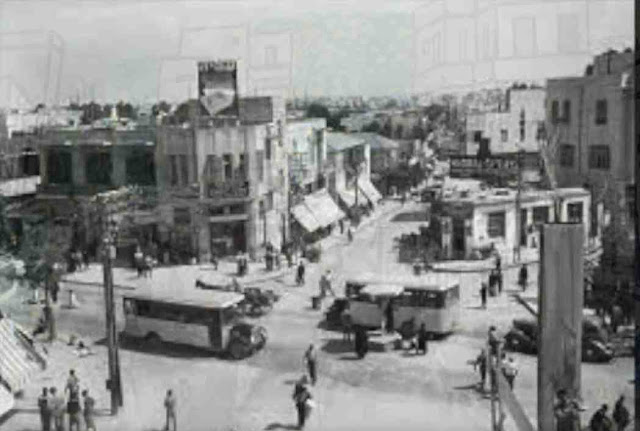
It was this that led to the disaster that is the 1993 Oslo Accords. At the time those of us who opposed Oslo were very much in a minority. Fateh activists were enthusiastic about its prospects and their prospects. This enthusiasm derived from the belief that Zionism could be confined within pre-1948 borders and could live alongside a Palestinian state. Unfortunately the Palestinian leadership never understood the nature of Zionism and how it is an inherently expansionist and colonisatory project. Or if they did understand it rhetorically they never incorporated it in their theory and practice. Today it is very clear that the Israeli state cannot be reformed and Zionism cannot change its spots.
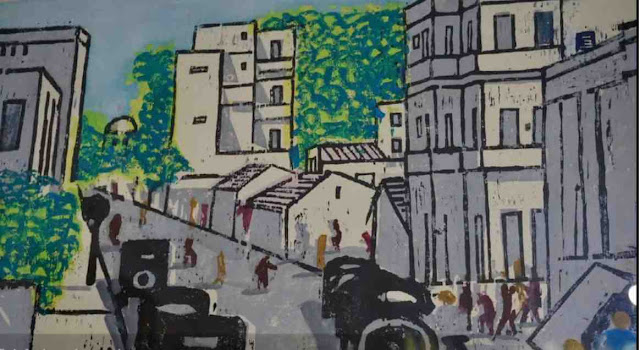
The other mistake of the PLO was, in exchange for subsidies to finance their operations, to establish uncritical relationships with the very Arab regimes which oppressed their own people. These regimes paid lip service to the Palestinian cause whilst in practice abandoning them. Today we can see this clearly with the Abraham Accords, which follow on from the 1978 Camp David Accords whereby Egypt recognised Israel. Following Oslo, Jordan also established diplomatic relations with Israel.
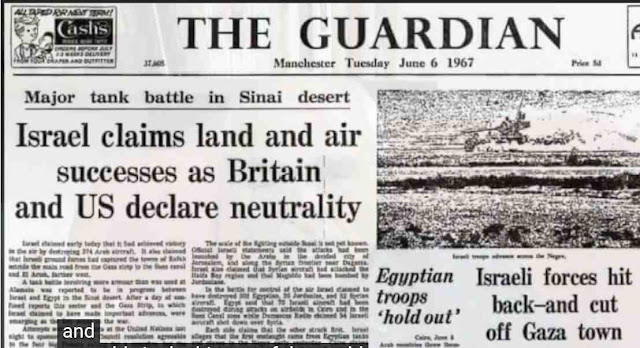
The Arab regimes fear, despise and oppress their own peoples. They are the junior allies of imperialism. Regimes such as that in Saudi Arabia and Egypt are some of the most brutal on the planet. They are jealously guarded by the Zionist regime in Tel Aviv yet the Palestinian movement has largely been uncritical of these regimes. The role of Israel is to ensure that radical Arab nationalism never triumphs in the region.
Where I disagree with Moshe is that I don’t accept that it is necessary for a socialist revolution to take hold in the Arab world before Zionism can be overthrown. If only because the establishment of socialism has proved rather more difficult than Marx and the early socialists envisaged. I think it is possible for nationalist revolutions to overthrow the ancien regimes in the Arab world and in that way to threaten the very imperialist interests that Israel is paid to watch over.
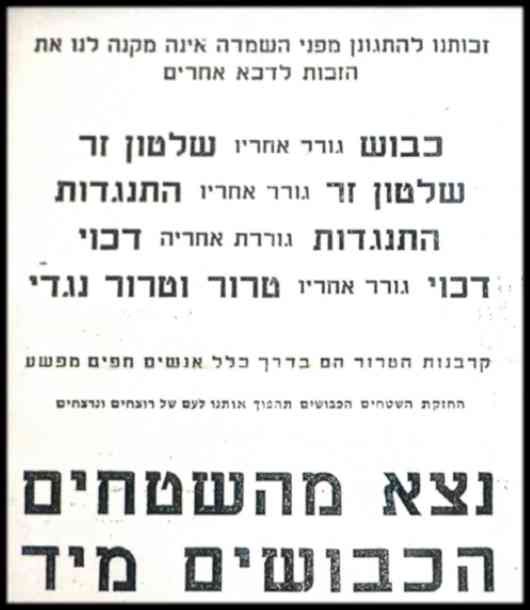
Moshe has lived through the entire period of the Israeli state. He recalls how, in September 1967, Matzpen was the first group to place an advert in Ha’aretz decrying the Occupation of Gaza and the West Bank which an Israeli Labor not Likud Government, presided over. Moshe also recalls the hostility and calls of ‘traitor’ that greeted this advert. The advert met with unbridled hostility and threats to the individual signatories.
Moshe tells how, at the age of 3, his first definite memory was the day that World War 2 broke out. He describes the bombing of Tel Aviv by the Italian airforce and says that by 1944 it was clear that something horrendous had taken place in Europe in respect of the Jews.
This is in itself instructive because the Zionist leadership in Palestine were well aware that the Holocaust was taking place from at least mid-1942 if not earlier but they did their best to play such reports down. The Hebrew press even whilst it reported on what was happening in Europe also cast doubt on its own reports. Zionism, which has fashioned the Holocaust into an ideological weapon, was at that time more concerned with state building than rescuing Jewish refugees.
Moshe emigrated to Britain in 1968. Many others in Matzpen also emigrated to the West because life was made very difficult for those who were seen as traitors to Zionism. Moshe became a Professor of Mathematical Logic and Philosophy at King’s College in London. Far from being a democratic society Israel has always been extremely intolerant of Jews who dissent from the Zionist narrative.
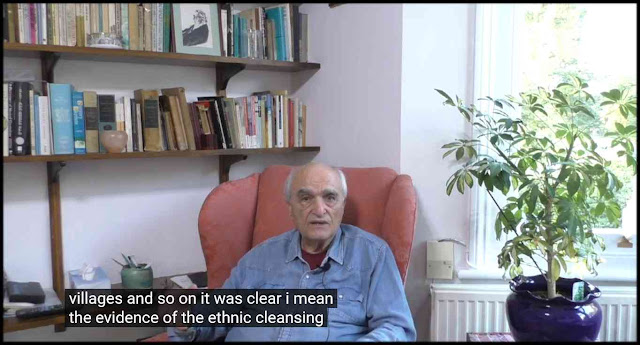
Moshe describes in some detail how, in the wake of the Nakba between 1947 and 1949, he and other children would hike into the Galilee and see the ruins of the Arab villages. They saw the artifacts and belongings left after the Zionist militias had looted much of what remained when the original owners had been forced to flee from Palestine. The Zionist myth that people like Israeli Ambassador Tzipi Hotoveli still propagate is that the Palestinians voluntarily left.
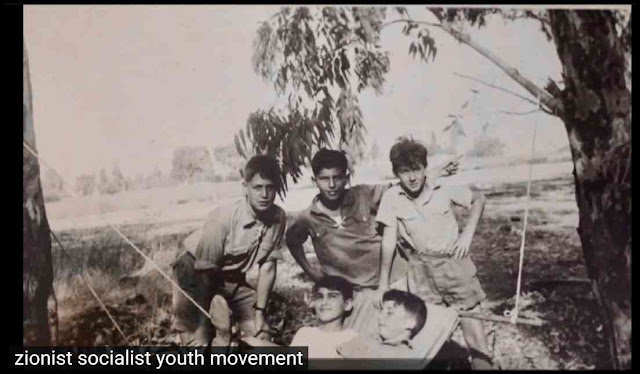
It was the Israeli Labor Party that presided over the 6 Day War and the conquest of the West Bank, Gaza, Sinai and Golan Heights. I remember very well how Israeli propaganda portrayed the situation as a possible new holocaust. We really believed that Israel might well suffer defeat and that the Jews would be driven into the sea. Of course this was a lie meant to fool not only Israeli Jews but the wider Jewish communities world-wide. We now know that this was, as Moshe says, ‘poppycock’.
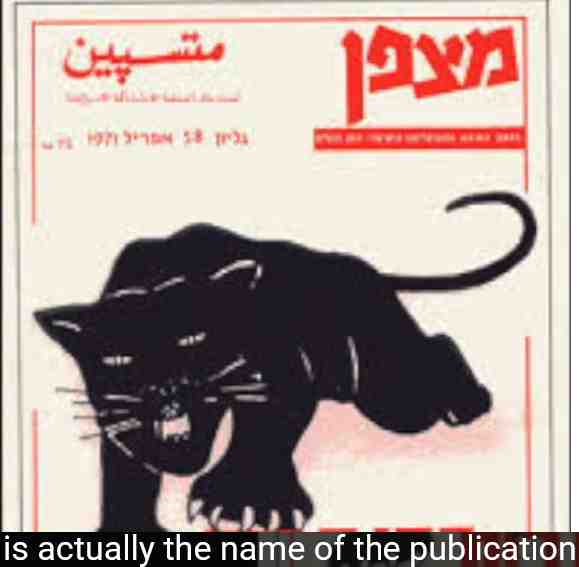
The ILP was also responsible for the establishment of the first settlements. It was an Israeli Labor Government which launched a pre-emptive war on Syria, Jordan and Egypt with the intention of completing what was they considered unfinished business in 1947-9, namely the conquest of the whole of what was Palestine under the British Mandate. In 1956 Israel had launched the Suez War, in conjunction with Britain and France, against Egypt following Nasser’s nationalisation of the Suez Canal. At that time Israel had been forced to withdraw after the US Administration of Eisenhower had made its displeasure clear.
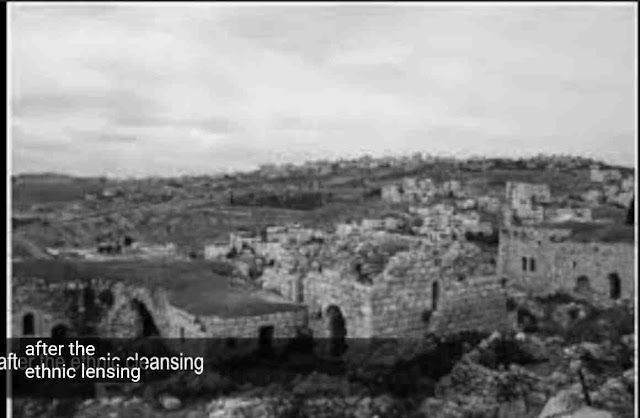
Moshe explains how one of the cardinal beliefs of the Zionists is that Jews don’t merely constitute a religious community but a nation in its own right. That is integral to the Zionist claim on what they call Eretz Yisrael (The Land of Israel). The basis of this claim is that God gave the land to the Jews. Given that the early Zionists were atheists, we have the absurdity that Zionism based its claim to Palestine on the promise of a god who doesn’t exist!
I hope you find this interview as illuminating and interesting as I did.
Tony Greenstein
I read it all and enjoyed it.
Moshe is a remarkable thinker, he too influenced in many ways of my thinking. All the best